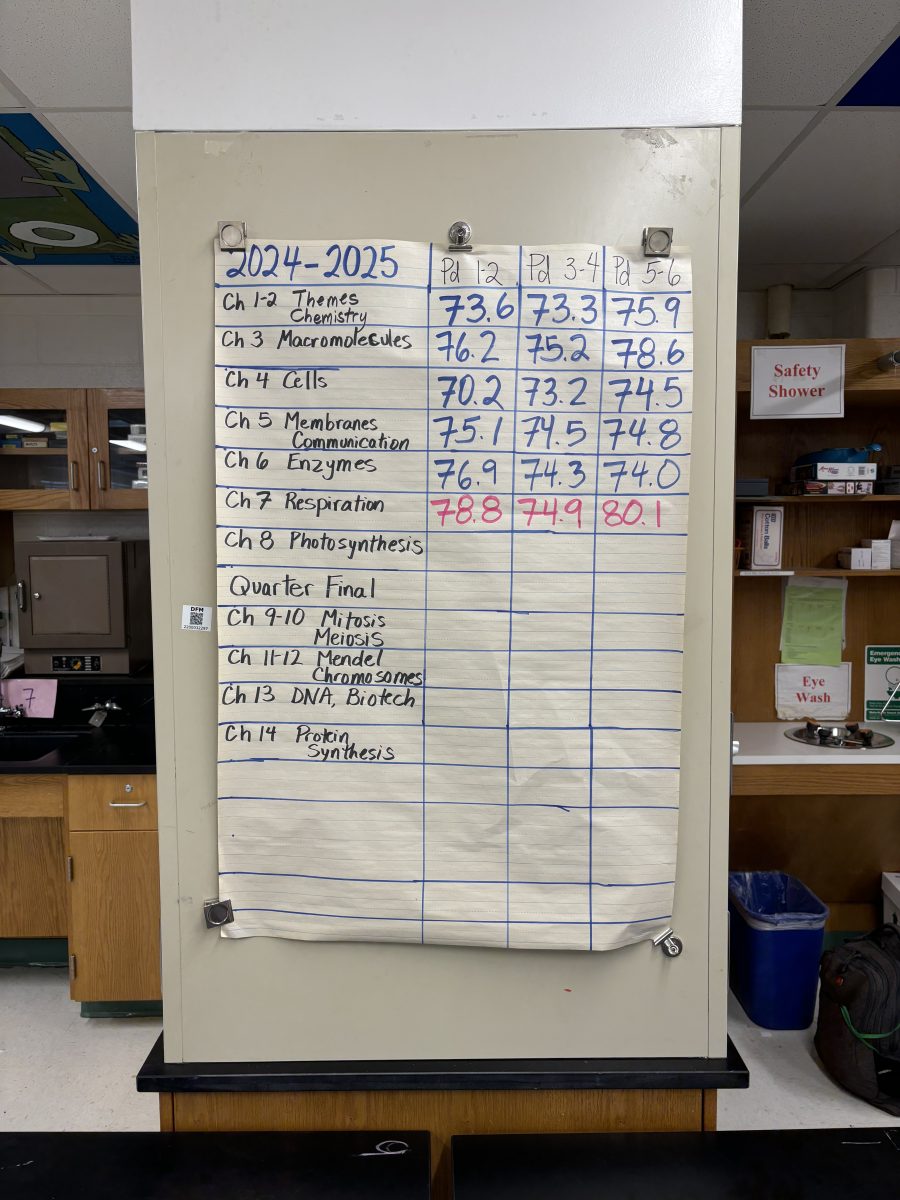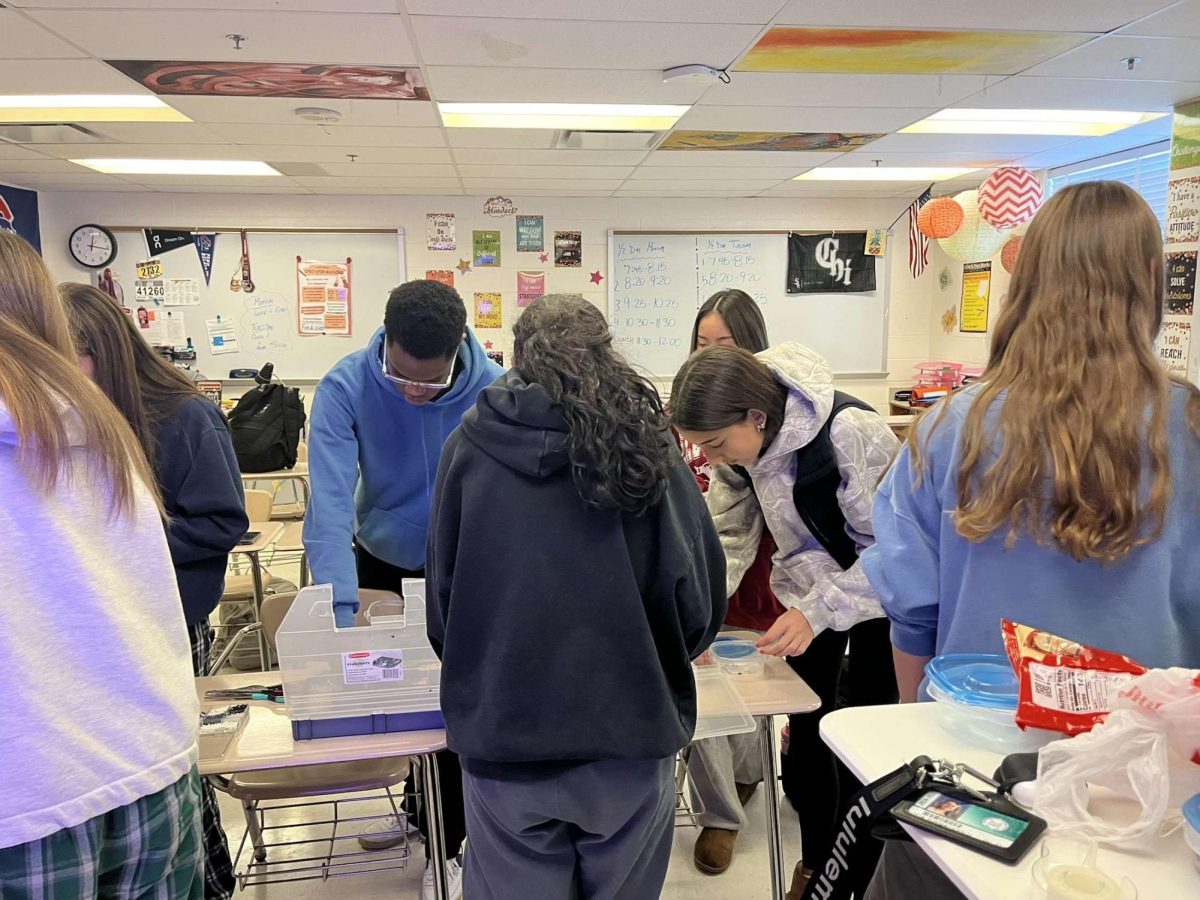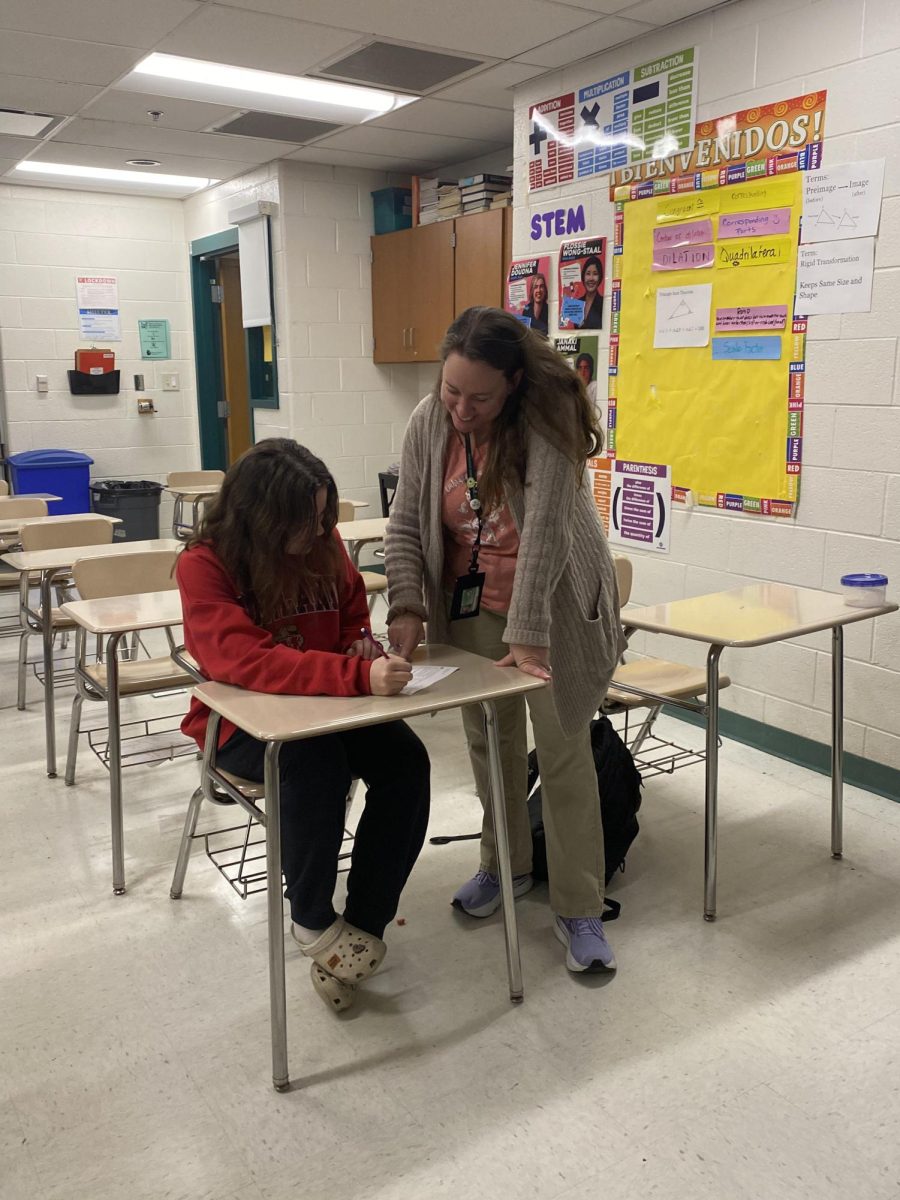As a WJ student sits down to begin homework one night, her phone chimes with a new text message: it’s a photo of another student’s completed history assignment, due the next day. After debating whether to copy the assignment or complete it themselves, the student eventually gives in to temptation. The student knew they would have to know the information for the history test coming up, but they were already exhausted from hours of previous work combined with after-school activities.
Extremely recognizable and oftentimes easy to spot, academic dishonesty occurs every day at WJ. With technology being more advanced than ever before, answer-keys to homework assignments float throughout group chats and students can be found in the halls pressuring their friends to tell them test answers. Among all of this, the question remains: where is the line between helping a friend and cheating? What differentiates academic dishonesty from just trying to scrape by in a class?
There are a variety of students who cheat at WJ, many of whom aren’t even intentionally cheating. The motives for cheating vary among students; some cheat purely to pass a particularly challenging class, while others cheat out of sheer laziness and feel no remorse in doing so.
One student, who wishes to remain anonymous, discloses his cheating habits and reveals that he tend to cheat on a lot of assignments.
“I cheat in most of my classes, but mostly on math tests. I have my friends tell me what’s on it and any answers they remember and then for the things I don’t know, I just look at other people’s papers,” the student said. “It’s not like it’s even really that big of a deal. I mean, I’ve never been caught and all of my friends cheat anyways,” the student confessed.
This is a common mentality among WJ students; if everybody else is cheating, what’s the harm in doing it yourself?
Having a reputation as “the cheating school,” WJ teachers have their own opinions on the issue.
“I think students need to be aware that when the perception is that they have cheated, the first response from them is ‘I didn’t do it’ and instead of that, owning that they’ve made a mistake goes a much longer way as far as a teacher’s perception of their integrity,” science teacher Terri Ravick said. “It’s better to own the mistake, recognize it, apologize and move on.”
One common practice upheld by students is the use of group chats. These infamous class group chats are used for informing others about assignments. Many people use them to ask about testing days and other due dates, something to be interpreted as students just helping each other manage classwork and homework.
While the group chats can be useful to students without being considered cheating, they can take a turn very quickly. After a first period test, group chats are flooded with messages from students asking, “What’s on the test? What do I need to know?”
Students commonly send answers to tests in group chats for students of subsequent periods, while students who have taken the test share as many of the answers as they remember, comparing their answers to those of their peers.
Another anonymous student believes that cheating is bad, but still can’t resist getting an advantage before taking an assessment.
“I don’t cheat a lot, but I have cheated before. I’m in a group chat for [one of my classes] and after every test, the people in the periods before me tell me all the answers,” the student said. “I also copy down homework answers sometimes if I forget to do it. I don’t make it a big thing though because I don’t think being a cheater is a good trait.”









